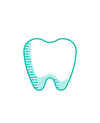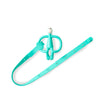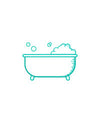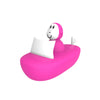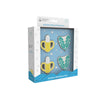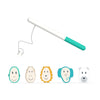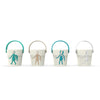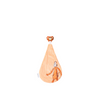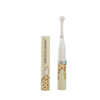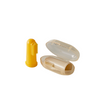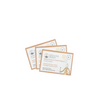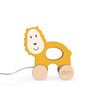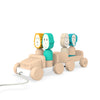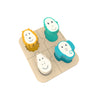Easy & Quick Postnatal Exercises to Keep Fit & Healthy
After you’ve had a baby, some mum’s can’t wait to get back to exercising but for others, it’s the last thing on their minds.
I’m pretty bad for making time for exercise anyway, never mind after giving birth, however, these easy and quick post-natal exercises are simple enough to squeeze (literally) in, whenever you get a spare few minutes!

When can you start exercising after having a baby?
Everyone is different when it comes to how much exercise our bodies can take, especially after having a baby. The official advice is to steer clear of high-impact exercise for about five months after having your baby - so that means no running or aerobics. When your pelvic floor is recovered, this is the time you can think about stepping up your workouts but just make sure not to push yourself too soon as this could lead to injury and longer recovery time.
These exercises focus on your core and pelvic floor muscles, both of which can be weakened during pregnancy and birth.
Benefits of postnatal exercise
- Boosts your endorphins and lift your mood
- Aids and assists in losing extra pregnancy weight (especially when coupled with a sensible diet.)
- Improve physical strength which will make looking after your newborn easier (they get heavy, quickly!)
Pelvic Floor Exercises
Your pelvic floor muscles are very important. They support your internal organs (bladder, intestines, uterus etc.), maintain bladder and bowel control (stopping wee escaping when we laugh, sneeze or jump), support the spine and help you enjoy sex more.
The stronger the pelvic floor muscles are, the better it is for all of the internal organs it supports and the functions they perform.
During pregnancy you will have been advised to complete pelvic floor exercises. These exercises are also important to help your perineum and vagina to heal faster after the birth.
The exercises improve circulation to the area which helps reduce and swelling and bruising. Don’t worry if you have stitches, your pelvic floor exercises won’t damage them at all.
Here’s a guide to your pelvic floor muscles and how to exercise them properly…
Walking with Your Baby
As soon as you feel able, go out for short walks, starting at 10 minutes (ish) with your baby. Pushing baby in a pram is perfect to help you build up your strength and your core as well as a good excuse to get some fresh air! You may have to wait longer to do this if you’ve had a c-section. If you’re unsure, ask your doctor for advice.
Gradually increase the length of the walks you go on till you can walk for 20-30 minutes. This will help to make sure you don’t push yourself too far, too soon.
Remember to take water with you - especially if you’re breastfeeding - as you don’t want to become dehydrated!
Stretching
Stretching is important to keep your muscles healthy and supple. It helps with flexibility, range of motion and injury prevention. If you’re lifting a heavy baby and carrying it around regularly, the risks of pulling a stiff muscle or injuring a muscle are raised.
Gentle neck, back, arm and leg stretches help your body recover after any exercise and also prepare your body for exercise.
Stretching might cause muscles to feel uncomfortable however it should not be painful. A painful stretch means that you’re doing it wrong or pushing your body too far. Remember to take everything slowly.
Yoga
Try some simple, low impact yoga postures or sequences. If you went to pregnancy yoga before giving birth, the easiest of these postures are great to start with, building up to more difficult postures slowly as you recover from the birth.
Yoga’s also great for relaxing you (birth and looking after a new baby can be a stressful time) and helping you to wake up or wind down, depending on the moves or sequences you perform.
The NHS have a link to a postnatal yoga video here.
Postnatal Care Help & Tips
If you’d like more information about postnatal care, this is a really helpful NHS PDF detailing how to take care of yourself after the birth of your child.

